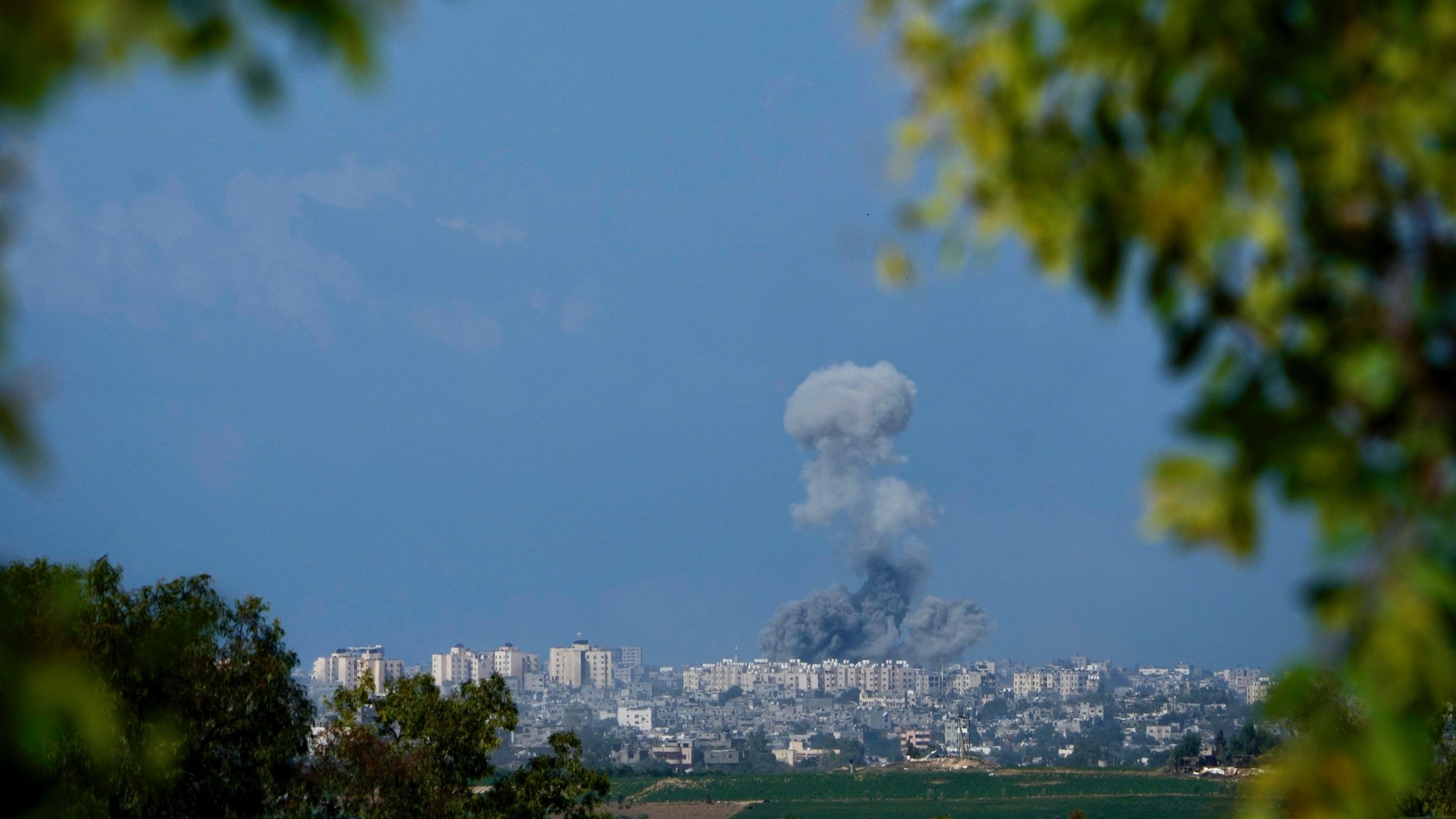Hamas militants launched an attack on Israel that left thousands dead and hundreds kidnapped on Oct. 7.
Images of war have plastered our devices in the weeks that followed with scenes of brutal bombardments, corpses, flattened neighbourhoods and massacres broadcast directly to our retinas and seared into our consciousness.
Journalists are tasked with the responsibility of telling the stories behind those images and informing the public.
However, we must be conscious of how special interests will weaponize atrocity propaganda to sway public opinion to justify further conflict.
Three examples from neighbouring nations come to mind, the Gulf War, the Iraq War, and the War in Afghanistan.
Iraq invaded Kuwait in August 1990, which kicked off the Gulf War involving the largest coalition of military forces since the Second World War.
In the lead-up to Western intervention, crucial testimony was given before the United States Congressional Human Rights Caucus by 15-year-old Nayirah al-Ṣabaḥ.
The testimony claimed the Iraqi army had taken babies out of their incubators at a Kuwait hospital and left them to die.
It was later revealed Nayirah was the daughter of the Kuwaiti ambassador to the United States and the testimony was fabricated as part of the Citizens for a Free Kuwait public relations campaign.
This false testimony, which was widely circulated, was instrumental in stringing American public opinion in favour of military action.
In the aftermath of the September 11th attacks, the U.S. launched what was described as a “necessary war of self-defence” in Afghanistan.
The atrocities that occurred on 9/11 were used as justification for a conflict that would go on for nearly 20 years and led to the deaths of tens of thousands of civilians.
The public outrage from 9/11 was also used to stir up support for the 2003 invasion of Iraq. Surveys from the time show Americans believed Iraq aided 9/11, Iraq was harbouring terrorists, and Iraq had weapons of mass destruction were all seen as reasons to favour military action by the American public.
After the war, there was no evidence found corroborating the claim Iraq had WMDs or was involved in 9/11.
Today, public opinion, including veterans who fought in the war shows a majority of Americans believe the war was not worth fighting.
I could cite countless more examples including the sinking of the RMS Lusitania in 1915, the Nato invasion of Libya, and the Spanish-American war, but I think my point is clear.
The prelude to war is almost always based around horrible atrocities, often true but weaponized, manipulated or exaggerated to justify further violence.
There are always people with agendas who seek out the platform of major publications to broadcast these claims to the world.
In the weeks since Oct. 7, major global publications have failed at their responsibility and several have had to retract claims, amend headlines and apologize for misinformation.
Yesterday the Israeli Prime Minister's office said that it had confirmed Hamas beheaded babies & children while we were live on the air. The Israeli government now says today it CANNOT confirm babies were beheaded. I needed to be more careful with my words and I am sorry. https://t.co/Yrc68znS1S
— Sara Sidner (@sarasidnerCNN) October 12, 2023
The most notable case was the claim that Hamas decapitated babies which was widely circulated before the Israeli government stated it could not confirm the validity of the claim.
Since then CNN’s Sara Sidner issued a correction saying, “I needed to be more careful with my words, and I am sorry.”
There are too many examples to highlight so I’ll leave off with this.
Journalists need to be more cognizant of the consequences of our coverage and uphold the highest possible standards of our craft.
Truth is often the first casualty of war, and our words can be as deadly as a bomb.
After all, the pen is mightier than the sword.

